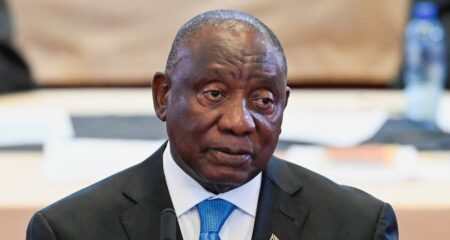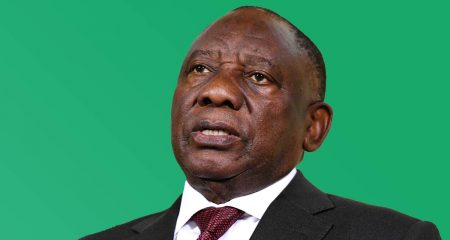
Launching the ANC election manifesto at Moses Mabhida Stadium in Durban on Saturday, party president Cyril Ramaphosa announced plans to create more than 2.5 million jobs in the next five years and said some of these would come from South Africa’s transition from coal-based power generation to cleaner energy.
“Our strategy will also meet the new global challenges of climate change. A balanced just transition to a cleaner, greener future can lead to new jobs and secure the competitiveness of our exports,” he said.
He also promised widespread technological changes, expansion of digital services and an increase in industrialisation to boost economic transformation.
He said the party would prioritise green technologies, energy efficiency, waste management, climate-smart agriculture and eco-friendly production processes.
The country would become a world player in green hydrogen, battery and electric vehicle production in order to adapt to the effects of climate change; and ensure a just transition to a low-carbon economy that “supports communities and workers in affected areas, particularly Mpumalanga”.
The ANC manifesto vowed to expand the local digital sector through universal access to broadband, including at schools, as well as making internet access affordable, investing in infrastructure, skills development, small enterprises and entrepreneurs, and promoting future industries, platforms and applications of so-called fourth Industrial Revolution (4IR) technologies.
Digital hubs
Creative industries and digital hubs would be established in townships and rural areas to produce digital content, including animation, gaming, virtual reality and augmented reality tools. Digital art production, “transmedia” and digital marketing would also be encouraged.
The state’s procurement budget would be used to bolster local businesses producing goods and services while incentivising private enterprises to follow suit.
Entrepreneurship, innovation and investment in emerging industries such as renewable energy, sustainable tourism, e-commerce and agri-technology would be incentivised in order to drive the economy.
Read: AI deepfakes and SA’s fight to protect the 2024 election
South Africa would develop gas, nuclear and hydropower projects for increased energy generation programmes, while development spending would be increased to prioritise industrialisation, climate change and technologies such as virtual reality, augmented reality, blockchain, artificial intelligence and the internet of things. This would also contribute to the African Union’s goal of producing 100 000 PhD graduates in science and tech development.
The ANC said it aimed to advance e-government and digital services to make government services accessible, interoperable and efficient. It would also fight cyberbullying, fake news and promote the mindful use of social media.
The Democratic Alliance’s manifesto, launched at the Union Buildings on Saturday, 17 February, said it would provide specialist schools for pupils with strong science, technology, engineering and maths skills.
All schools would have internet access and free digital content, bearing in mind that access to the internet for learning is vital and that few state schools are equipped to offer this, the DA said.
Read: ‘Hacking the electorate’: the tech threat to the 2024 election
It said it would reduce the high tariffs on imported renewable energy technologies, such as PV panels and other goods, and move away from reliance on Eskom by increasing the use of renewable energy sources.
The DA also committed to achieving net-zero carbon emissions to reduce the impact of energy generation on the climate by diversifying the energy mix. – © 2024 NewsCentral Media




